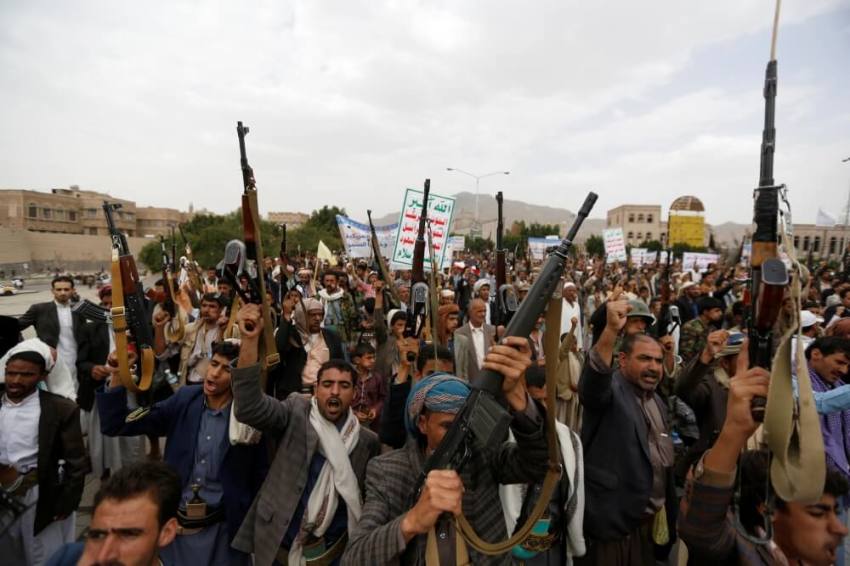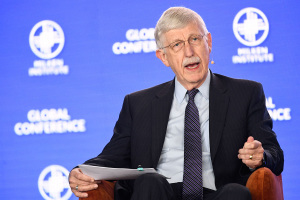US removal of Houthi terror designation may heighten Yemeni Christian persecution: Open Doors

The U.S. government's decision to remove the terror designation from the Iran-backed Yemeni Houthis could lead to heightened Christian persecution, according to the head of a prominent international Christian human rights organization.
After the Biden administration removed the Houthi organization, known as Ansar Allah, from the list of foreign terrorist organizations early last month, two Saudi-influenced newspapers reported Yemen’s Houthi militia is threatening Christians with extended detainment.
David Curry, the president of the Christian persecution watchdog organization Open Doors USA, told The Christian Post in a recent interview that removing the terror designation applied by the Trump administration in 2018 is a “mistake” that will only “embolden” Houthi militia.
“What we are seeing now is what would amount to an escalation,” Curry, whose organization monitors persecution in over 60 countries, explained. “It sets a legitimacy to the Houthis that they have the right to do this. We gravely disagree with that.”
The State Department released a statement on Feb. 7 condemning the Houthis and called them to “immediately cease attacks impacting civilian areas” and “halt any new military offenses inside Yemen.” On Saturday, Saudi Arabia said it intercepted a missile attack over its capital city and bomb-laden drones that it blamed on Houthi rebels.
On Sunday, the State Department condemned the reported attacks on population centers in Saudi Arabia and called on Houthis to end “these egregious attacks” and “engage constructively” with United Nations Special Envoy Martin Griffiths and U.S. Special Envoy Tim Lenderking to bring peace to the Yemeni people.
In making its move to remove the terror designation from Houthis, a State Department official argued in a remark to the Associated Press that the prior administration made a “last-minute designation” that international bodies and human rights groups argue “would accelerate the world’s worst humanitarian crisis.”
“I would say that removing the terrorist designation from the Houthis is a mistake,” Curry told CP. “It is going to embolden them. It is meant to be a signal to Iran that we [have] shifted our allegiance from the previous administration to balance over to Saudi Arabia down to favoring Iran and their Islamic regime.”
Curry, who has met with and advised policymakers from both sides of the political aisle in Congress, the White House and the State Department over the years on various international issues, said he believes there will be consequences in the region because of this move.
“You have the crumbling infrastructure of a five-year Civil War. You have religious extremists. You have the danger of this Houthi political agenda against Christians,” Curry warned. “They are detaining [Christians]. They’re torturing pastors and leaders in the country, so it’s a complicating factor.”
Mushir Khalidi, a 50-year-old priest in Yemen, has been detained by the Houthi’s intelligence service for four years, according to Saudi-based English newspaper Arab News.
Prisoners released from the Houthi detention centers have revealed Houthis are targeting Yemenis suspected of being Christian. Many Yemeni Christians have already fled the country, and the militia has also oppressed Jews and Baha’is for many years, the London-based newspaper Asharq Al-Awsat reports.
“They are using discrimination against Christians to try to gain control, to enforce terror in some of these communities,” Curry said. “… The Church and Christian minorities [are] being caught in the crosshairs of this. You have several thousand Christians there. But you have so many factors of oppression, discrimination, and violence against them that just makes it very, very difficult.”
Curry believes the removal of the terrorist designation from the Houthis was an attempt for the U.S. to have more peaceful relations with Iran.
“The Biden administration, I believe, is coupling this with other agreements with Iran,” Curry explained. “They want to be on friendlier terms and strengthen Iran’s influence in the region, and this would certainly do that. I don’t think that’s going to be helpful, but I think that’s the strategy.”
Open Doors USA ranks Yemen as the seventh-worst country globally when it comes to Christian persecution on its annual World Watch List. In addition to persecution from authorities, the organization reports that “Islamic militant groups threaten Christians from a Muslim background with death, and tribes may kill or banish anybody converting to Christianity.”
International Christian Concern’s Regional Manager for the Middle East Claire Evans told CP she believes removing the Houthis’ terrorist designation may be two-fold.
Evans explained the first reason could be to allow more humanitarian aid to reach Yemen. Since the Houthi militia is largely located along the coastline, it is hard for aid to arrive if Houthis are designated as a terrorist group. Another reason for the U.S. to make this decision could involve the Iran Deal.
“It is emboldening to Iran,” Evans said. “It is emboldening to the Houthis to have this terrorist designation removed. To have terrorists emboldened, things tend to get more violent more aggressive, so we do have to be more concerned about that.”
Yemen is in the middle of a civil war, a proxy war between Iran and Saudi Arabia.
The United Nations considers Yemen the world’s worst humanitarian crisis and estimates that almost 250,000 people have died from fighting and war-related problems like hunger.
Only several thousand Christians live in Yemen, though the number is uncertain due to the secretive nature of the religion because of the persecution threat. Most of Yemen’s Christians are Muslim background believers, and the church operates primarily underground.



























